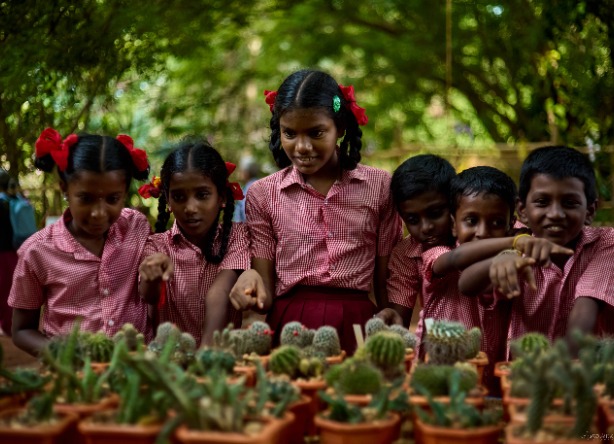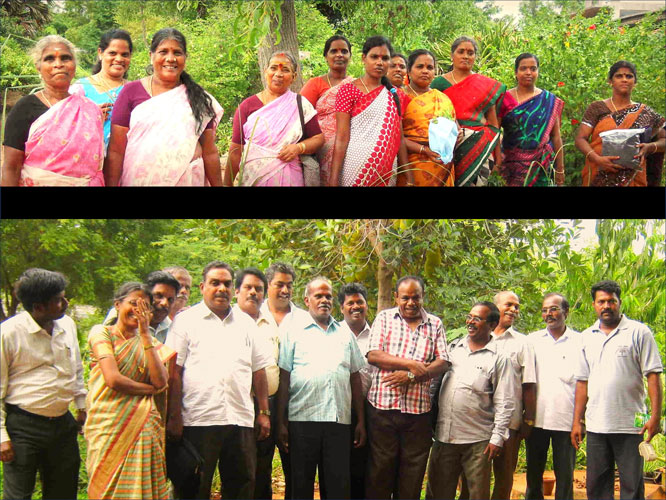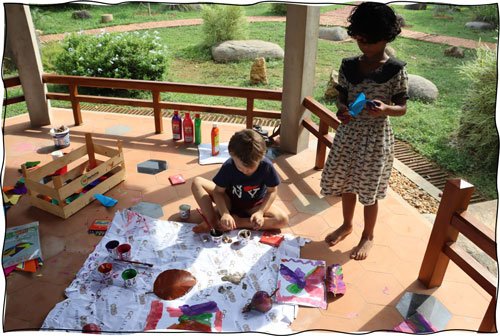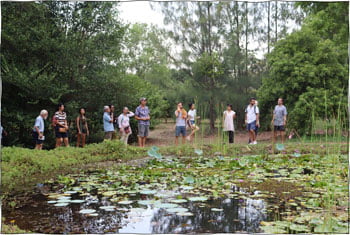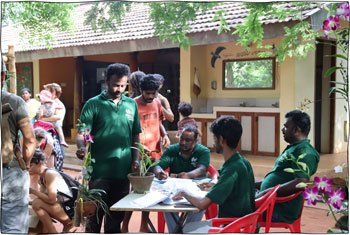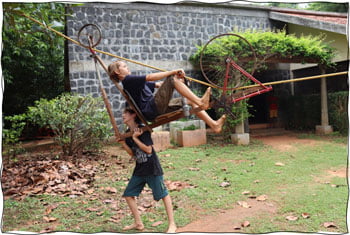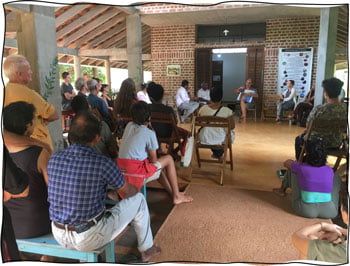Education
School Visits
Ecological Horticulture Course
Training programs
Wildlife Cabin
Forest Moots

Day visits for 30–60 children at a time take place on a regular basis from schools within the surrounding bioregion. Trips for government schools are completely provided by the Gardens, along with transport and a healthy and tasty lunch. This adds up to around 100 visits per year, along with 2 or 3-day camps for batches of 20 students around 10 times a year.
School visits
Every year more than 3,000 school students come to the gardens and we try to encourage their appreciation and sympathy for the local ecosystem through interactive and fun sessions. Day visits for 30–60 children take place on a regular basis from schools within the surrounding bioregion. Trips for government schools are completely funded by the Gardens, along with transport and lunch. This adds up to around 100 visits per year, along with 2 or 3-day camps for batches of 20 students around 10 times a year.
We receive schools from all over India with the focus on creating happy memories associated with the natural world. Each child will have a different level of interest in what we are showing, however we try to tailor the interactions we have so that we can speak on many levels to the groups, exposing them to the various aspect of the gardens we have created.
Whether we are introducing them to the native species that form the most stable vegetation type of the area, or medicinal plants that can serve them in maintaining their health, or even showing them the solar panels and windmill that we use to power the gardens, the focus is always on providing a positive message of action and engagement.
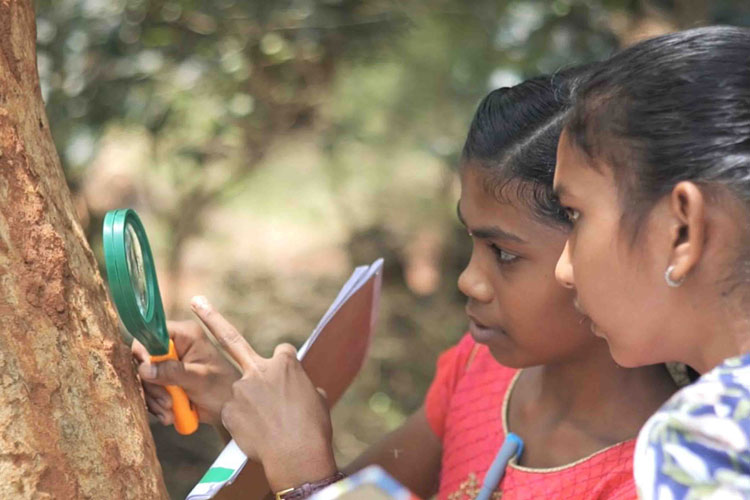
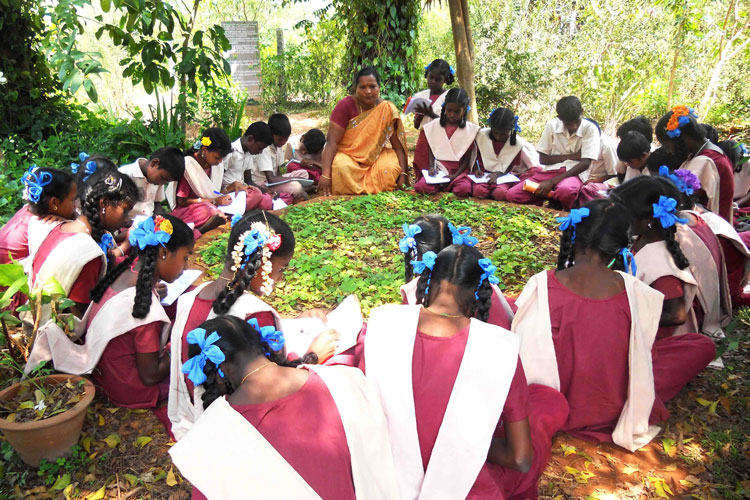


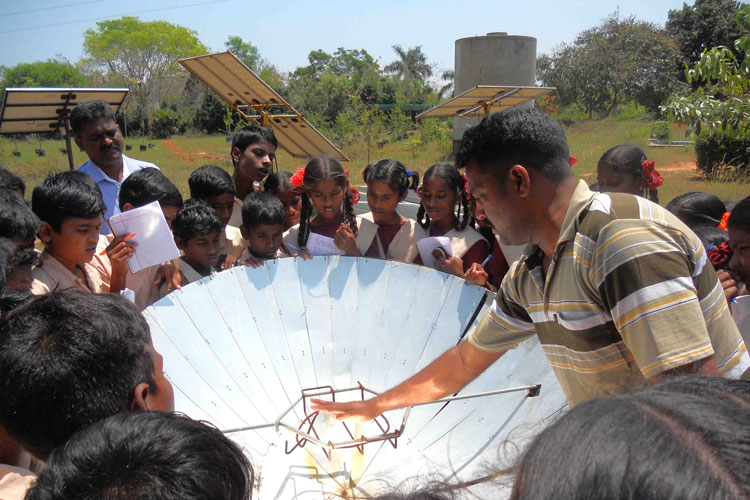
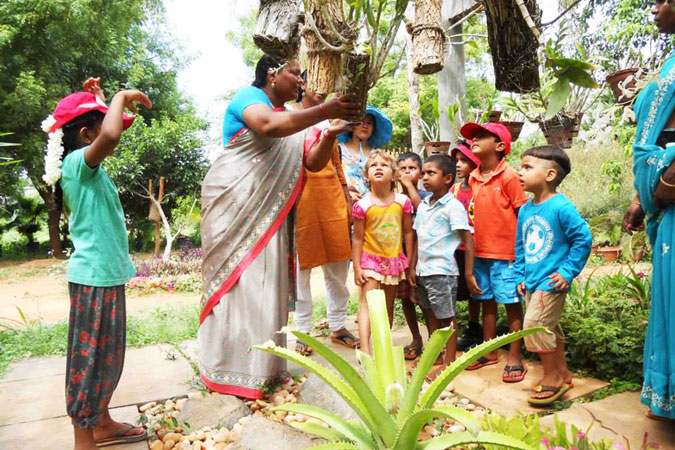
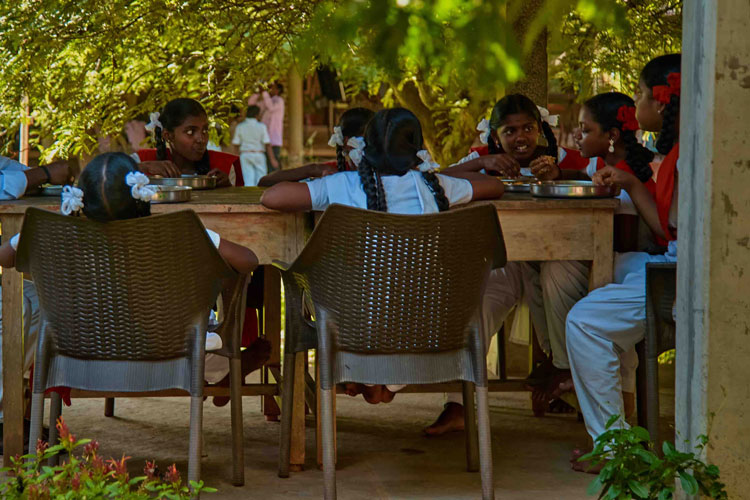
Ecological Horticulture Course
The Ecological Horticulture Course is a yearly program that runs for 4 months at the Auroville Botanical Gardens. We are in the 5th year of the Course. The purpose of the Ecological Horticulture Program is to train a new generation of professionals who are competent to lead teams in the field engaging in conservation work. The intention is to combine knowledge of plant biology and ecosystems with practical hands-on experiences that ensures best practices can be followed.
Our lecturers have many years of experience in the fields of horticulture, landscaping, arboriculture, forestry, geology , soil science and project management, as well as a deep concern for the conservation and restoration of natural habitats. Their aim is to impart the knowledge and experience that they have gained throughout a lifetime of working on the land.
When applications for the upcoming batch become available, you’ll find an application form accessible on this website. The prospectus is available here.
You can learn more and stay up-to-date by connecting with us on Instagram: @learning.community_avbg
Words from the participants
Awareness and Training programs
In another example, the visits of the local women’s groups is always a lively affair, as their interest in plants is keen and practical. They often have their own knowledge of the uses of the local plants, either for medicine or as religious offerings, which they are enthusiastic in sharing with the rest of the group. Thus each visit is an exchange where we can share our accumulated knowledge and add more as the regional variations are revealed.
They also take great delight in seeing new varieties of flowers, as the appreciation of beauty is inherent in all layers of Indian society.
We run training programs with other organisations like the Forest Department to develop awareness of native species and the need for their active conservation. Similarly, when groups of teachers come to the gardens for a training in environmental education, the aim is to provide clear and demonstrative examples of the knowledge that the teachers already have. The general awareness in India of the need to conserve the environment is already there, but often the task seems so large and overwhelming that it is difficult to know where to start.
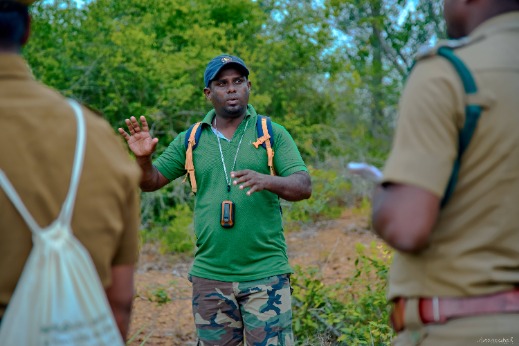
By sharing our experience of working with groups, and giving precise information about plant species and their uses, we are able to develop the capacity of the teachers to impart knowledge to their students. It is also an important way to network our work, as more often than not the teachers make efforts to return to the gardens with their students.
Co-creating knowledge capacity building – native species conservation
Wildlife Cabin
Plants are associated with animals, and so we are working on a project that helps people to see, understand and contextualize the animals of our bioregion – past and present.
To this end we are developing a wildlife cabin that houses and displays information about the animals we might see or discover traces of. In order to educate through play, and to create an interest in and learn about local ecology, art activities are created with projects such as Butterfly Bingo (a game for visitors to find and learn about 20 common butterflies), which has been extended to Odonates, Ants and more.
Other examples of resources developed include our TDEF Memory Game, posters on Wildlife Tracks, Mushrooms, and Birdsongs Cards to identify 30 local birds by their songs.

